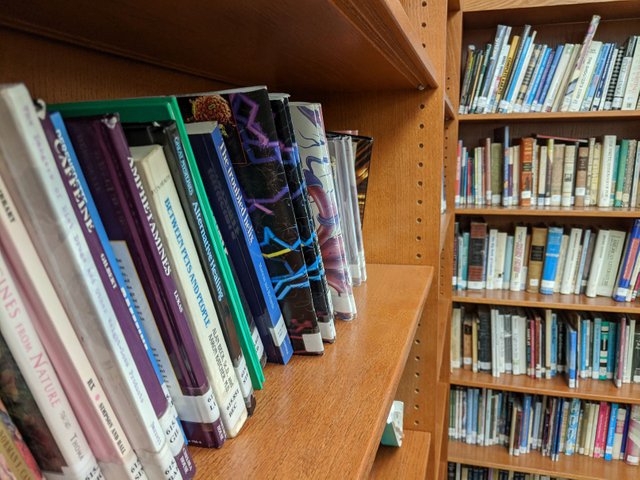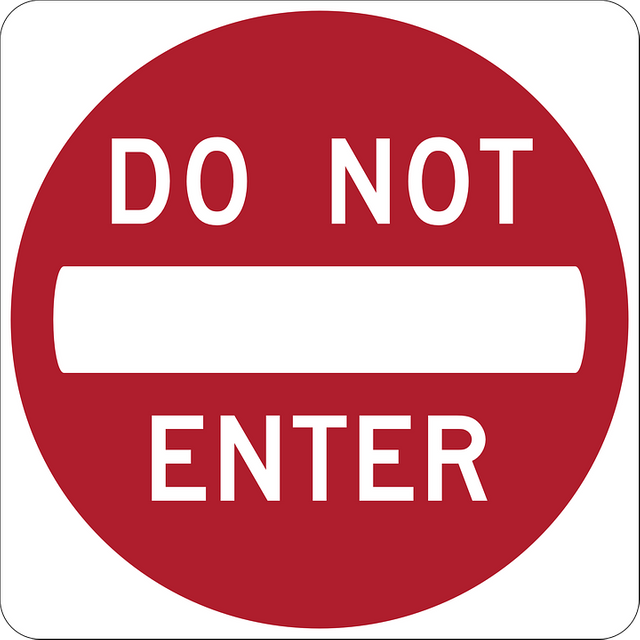Ed Tech: To filter or not to filter?

I have been working in Education Technology for sixteen years now. In that time, there have only been a handful of things that haven't changed. The most obvious one to me is the fact that Internet access needs to be filtered for our students and staff.
Living and working in the US, we are held to a certain law called CIPA. Actually, there are a couple of other ones too including FERPA, and COPPA, but CIPA is what I want to talk about today.
At some point in time, the government decided it would be a good idea to tie funding approval to a district's compliance with CIPA. For example the federal E-rate program gives districts discounted pricing for telecommunications services. Part of your requirements for this program is that you verify and have a policy in place to ensure you are CIPA compliant.
There are countless other government title programs that also have this rule or stipulation. Basically, they are saying if you are going to use government funding to provide Internet to a student, you better make sure that it is filtered. This is one of the key reasons any "1 to 1" initiative where a student takes a device home will have some form of filtering.
As I said before, in my time I have seen many changes to how this is implemented, but the fact that it needs to be implemented has not changed. I have used Linux based and open source products for filtering like Dansguardian and Squid. More recently I am using an appliance by a company called iBoss for my entire district and a cloud solution called Securly for my Chromebooks.
It never fails that there always seems to be a debate about "what" actually needs to be blocked.
A little background
First let me start by saying your district or whoever provides your district with Internet probably has two separate devices at their facility (or head end). The Firewall is mainly there to protect the network from incoming traffic or attacks. The Content Filter as its name implies controls the content that end users request and actually shows up on their screen from the Internet.
I mention this because I occasionally have staff members refer to whatever is blocking a webpage as the Firewall as opposed the Content Filter. It's a sad fact, but knowing the proper terms will give you a little more legitimacy when you are talking to your tech department.
That being said, there are times when a service on a web page requires a certain port to be opened, and in those cases it is usually an issue with the Firewall (you wouldn't see a blocked page though, the site just wouldn't load).

The great debate
If you ask 50 tech directors in a state what kind of content they filter, you will probably get 50 different answers. There are three or so things that should always be common between them...
These are pretty much non-negotiable's: Things like porn/adult content(in it's various forms), violence, hate, etc.
In fact, since our content filter is housed at our local ISD (Intermediate School District also know as a RESA Regional Education Services Agency) they have those categories locked down so even at a local level we can't bypass them.
Then, there are the other things, stuff like drug and alcohol content, games, or social media sites, things that are mildly objectionable or just a waste of time. This is where the real gray area starts.
On one level you will have districts who choose to block everything that is not educationally relevant. Others, (like me), will simply block the minimum required content necessary for our funding to stay intact. The rest of the districts will fall somewhere between those two.
Here is the reasoning for my approach:
- The Internet is a big place and there is a lot of crap out there. I feel it is more important to teach kids digital citizenship and responsible behavior online rather than simply block everything. As individuals we need to be able to learn and discern what is valuable content and what is not. Is this legitimate, does this edify my soul or my pursuit of knowledge?
- Many times a teacher will come to me and say a specific kid is on a specific site and not paying attention in class, "can you block it?". More often than not, I will say no. A student not being on task isn't a technology issue, it is a classroom management issue. I know that may be hard for some teachers to hear, but even if I were to block that site, the student would probably just find a different one. The problem isn't the Internet, it is their disinterest or inability to engage in what is being taught or how it is being presented.
As I mentioned before, the Internet is a big place and it is changing all the time. It is inevitable that at some point a new site is going to pop up that the filter hasn't added to it's blacklist yet or just slips through the cracks. It is important to have a policy in place to handle situations like that and that this policy is very transparent to your staff and your community members.
Being clear about what is expected and what can occur goes a long way if you find yourself in one of those "how could this happen, I thought we had filtering" scenarios.
For the most part, the students and staff in my district have the same level of filtering. This does vary a small amount, in fact, I needed to add Steempeak to my allow list because it was flagged as "Adult Content" for some reason.
The fact is, students or staff may be doing a lesson the dangers of drugs or suicide or any other topic that might be blocked by overly strict filtering. Additionally, new teachers are coming out of college being taught to utilize resources in their class like Facebook and Twitter. Why would I tie their hands by blocking such tools just because they can be misused. I can stab the person next to me with a pencil yet we still use them every day.
A simple glance at the news will show you any number of instances where it might have been a good idea for the staff to have the same level of filtering as the students. It's my job to make sure that news story isn't about my district!
This went on a bit longer than I had anticipated but if you made it to the end, thank you. Do you work in education? What are your thoughts on content filtering? I'd love to read your comments!
Sports Talk Social - @bozz.sports

Filtering is a sensitive subject. My work filters a lot of stuff, but they generally trust us. They have security in mind. My home Internet also filters porn and some other stuff, but I think I have control of that. It doesn't affect stuff I'm actually interested in. Steemit/Steempeak/busy etc could be an edge case as you can find porn, drugs, gambling and other stuff here.
Very true. I specifically allowed it as an exception for basically just the admin. I doubt very few people around these parts probably even know what it is. Plus I have the built in filtering enabled.
An Interesting read, and No I don't work in the Education Sector, I have at times in my Career been in charge of our IT Department sin Missions or in my role here providing guidance on our policies regarding Firewalls and content Filtering, and its always debated by IT managers and users what should or should not be restricted and ther eis never a happy balance for sure.
As for blocking things because a student is looking at it and distracted from his class work, I have had similar requests so that Staff wont be able to do so much on the internet and hence work more, and I took the same approach, thats a people management problem not a tech problem
Indeed. It is amazing how something like a policy issue can become a technology issue if handled in a poor way.
And sadly my experience is that happens far to often, will be glad when I dont get dragged into discussions of that type come retirement
Being a contractor I work on many sites. There's always times when I'm bored so try to get to social media, games sites etc..., and they are all different.
On this one, the games review sites are banned, some ban Facebook.. other don't give a crap.
As you say, it's up to the moderator to set the rules. Good to see you are one of the flexible ones. Steemit is never banned... nobody knows what it is.
Indeed. I will admit, I used to hold a harder line, but over there years my views have evolved and in my opinion there are just some battles that are more important to fight.
Good to hear, we all like to sit back, skive and do some R&R sometimes!
Hi, @bozz!
You just got a 2.99% upvote from SteemPlus!
To get higher upvotes, earn more SteemPlus Points (SPP). On your Steemit wallet, check your SPP balance and click on "How to earn SPP?" to find out all the ways to earn.
If you're not using SteemPlus yet, please check our last posts in here to see the many ways in which SteemPlus can improve your Steem experience on Steemit and Busy.
To listen to the audio version of this article click on the play image.

Brought to you by @tts. If you find it useful please consider upvoting this reply.